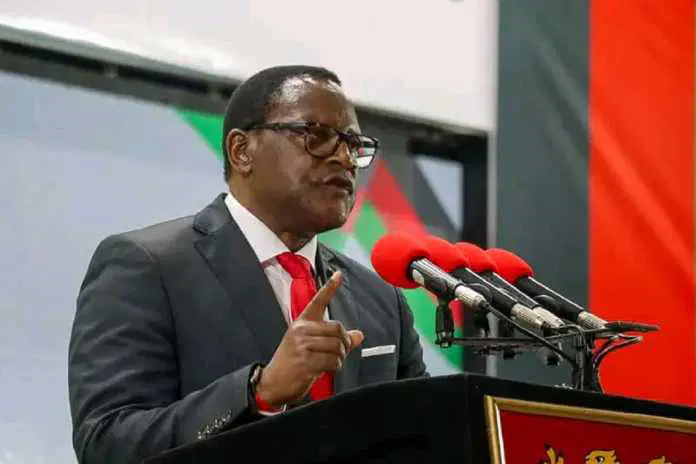
When Lazarus Chakwera rose to power in 2020, he was hailed as a divine answer to Malawi’s decades-long struggle against corruption, poverty, and political decay.
A former pastor, he carried not just a Bible, but also the hopes of millions who believed his moral compass would guide the country into a new era.
Today, many Malawians feel betrayed.
Chakwera’s promises were bold: one million jobs for the youth, an end to nepotism, eradication of corruption, healthcare reform, agricultural revival, and national unity. But five years into his presidency, critics say the reality has been far removed from the rhetoric.
“Youth unemployment remains a raging crisis,” says Burnett Munthali, a Malawian political analyst. “More graduates are roaming the streets than ever before.
His promise of one million jobs has proven unrealistic, with little infrastructure or investment to support such expansion.
Chakwera pledged to root out nepotism, yet key positions in State House and government agencies have reportedly gone to friends, relatives, and loyalists, often from the Central Region or linked to the ruling Malawi Congress Party (MCP).
On corruption, his stance has disappointed many. Under his administration, high-profile scandals have rocked public trust — from the K750 million COVID-19 fund mismanagement to irregularities in the Affordable Inputs Programme.
While investigations are frequently launched, few tangible results follow, and critics accuse the government of shielding allies while targeting political opponents.
Despite early assurances to decentralize power, Chakwera is accused of consolidating authority.
“He has grown increasingly imperial in his leadership,” Munthali writes, describing an administration more focused on self-preservation than reform.
In healthcare, conditions remain dire. Hospitals are underfunded, with patients reportedly sleeping on floors and lacking basic supplies.
In agriculture, rising fertilizer prices, market access issues, and inefficient programs continue to burden farmers.
The economy is in free fall. The kwacha continues to devalue, inflation remains in double digits, and the cost of living has surged.
Blackouts, water shortages, and fuel crises are now routine, turning daily life into a struggle for survival.
“He said ‘this is our time,’” Munthali writes, “but for most Malawians, it has become a time of betrayal, suffering, and broken dreams.”
For many, the story of Lazarus Chakwera is no longer one of resurrection — but of a leader who rose on promises and fell under the weight of their unfulfilled echoes.



